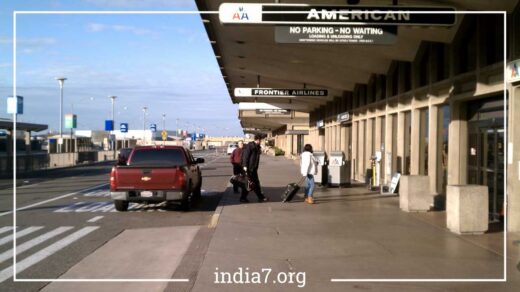Travel Guide to Austria: A Journey Through Culture, Music, and Natural Beauty

Austria
Austria, situated in the heart of Europe, is a country that captivates travelers with its rich cultural heritage, world-famous music festivals, and stunning natural landscapes. Whether you’re exploring the romantic castles, immersing yourself in the vibrant culture, or taking in the majestic Alpine scenery, Austria offers a diverse range of experiences that will leave you awe-inspired. In this comprehensive travel guide, we’ll take you on a journey through Austria, providing you with detailed insights into its history, culture, sightseeing attractions, travel tips, and much more.
Introduction to Austria
Nestled in the heart of Europe, Austria is a landlocked country bordered by Germany to the northwest, the Czech Republic and Slovakia to the north, Hungary to the east, Slovenia and Italy to the south, and Switzerland and Liechtenstein to the west. With a population of approximately 8.9 million people, Austria is known for its stunning Alpine landscapes, historic cities, and rich cultural traditions.
About the Country
Austria’s history is deeply intertwined with the development of classical music, making it a mecca for music enthusiasts worldwide. The country celebrates some of the world’s most renowned music festivals, including the Salzburg Festival, Haydn Festival in Vienna, and the International Chamber Music Festival. Vienna, the capital of Austria, proudly holds the title of the musical capital of Europe, and it’s no wonder, given its illustrious musical history. Great composers like Wolfgang Amadeus Mozart, Ludwig van Beethoven, and Franz Schubert called Vienna home, leaving an indelible mark on the city’s cultural identity.
Centuries of hardship and innovation have shaped Austria into a cultural powerhouse. Vienna, in particular, stands out as the birthplace of Mozart and the backdrop for the works of Beethoven and Schubert. The city is a testament to the enduring legacy of classical music, and visitors can explore the homes and museums dedicated to these musical geniuses.
In addition to music, Austria boasts a rich tradition of horse dances, which are an integral part of its festivals. The winter season blankets the country in snow, transforming the stunning Alpine region into a winter wonderland. Skiing and snowboarding enthusiasts flock to Austria’s world-class resorts to indulge in their favorite winter sports. Summers in Austria are characterized by moderate temperatures, making it an ideal time to explore the country’s natural beauty and cultural treasures. Rainfall can be expected year-round, so it’s wise to be prepared for changing weather conditions.
In case of emergencies, you can reach out for assistance by dialing 120 or 123, and the friendly locals are usually more than willing to help travelers in need.
Sightseeing in Austria
Austria is a land of captivating beauty, with a diverse range of attractions to explore. Here are some of the must-visit sights in this enchanting country:
- Schloss Durnstein: One of Austria’s romantic castles, Schloss Durnstein offers breathtaking views overlooking the picturesque River Danube. The castle’s history and stunning architecture make it a perfect destination for history buffs and photographers alike.
- Majestic Alps: During the winter months, the snow-covered Alps are a sight to behold. Whether you’re an avid skier or simply looking to enjoy the stunning landscapes, a visit to the Austrian Alps is a must.
- Historic Cities: Austria is home to several historic cities that are a delight to explore. Vienna, Salzburg, Innsbruck, and Graz each have their unique charm, with well-preserved architecture, vibrant cultural scenes, and mouthwatering cuisine.
- Vienna’s Museums: Vienna boasts an impressive array of museums and cultural institutions. The Museum of Art History (Kunsthistorisches Museum) and the Belvedere Palace are just a few places where you can immerse yourself in art and history.
- Danube Valley: The Danube Valley is a UNESCO World Heritage site known for its stunning landscapes and charming villages. Take a cruise along the Danube River to fully appreciate the natural beauty of this region.
- Eisriesenwelt Ice Cave: Located in Werfen, this ice cave is the largest in the world. Guided tours take you through a mesmerizing world of ice formations, creating a unique and unforgettable experience.
- Schönbrunn Palace: This opulent palace in Vienna is a UNESCO World Heritage site and was once the summer residence of the Habsburg monarchs. Explore the lavish rooms, beautiful gardens, and the Gloriette, which offers panoramic views of the city.
- Hohensalzburg Castle: Perched atop a hill in Salzburg, Hohensalzburg Castle is one of the largest medieval fortresses in Europe. The castle offers stunning views of the city and surrounding countryside.
- Hallstatt: This picturesque village, nestled on the shores of Hallstätter See (Lake Hallstatt), is often considered one of the most beautiful in the world. Its charming streets, historic architecture, and tranquil lake make it a must-visit destination.
- Grossglockner Alpine Road: This scenic drive takes you through the heart of the Austrian Alps, offering breathtaking views, alpine meadows, and the opportunity to spot local wildlife.
Culture and Customs
Understanding the culture and customs of Austria is essential to have a respectful and enriching travel experience:
Languages: Austria is a multilingual country with German being the official language. However, you’ll also hear Hungarian, Slovene, and Croatian spoken in certain regions, particularly near the borders.
Greetings: When meeting Austrians, a simple handshake is an appropriate greeting. Initially, it’s polite to refer to people by their last names, but as you become better acquainted, you can transition to using their first names. In public, greet people with “Guten Tag” (Good day) or “Gruss Gott” (Hello), and when saying goodbye, use “Auf Wiedersehen” (Goodbye).
Gift Giving: When visiting someone’s home, it’s customary to bring a gift, often in the form of flowers or chocolates. This gesture is a sign of appreciation for the hospitality you’ll receive.
Horse Riding: Austrians have a deep passion for horse riding, and the country is renowned for its equestrian traditions, some of which date back 400 years. To witness these impressive horses in action, it’s advisable to book tickets in advance.
Tipping: While service charges are typically included in restaurant bills, it’s customary to leave an additional 5% as a tip to show appreciation for good service.
Getting to Austria
Austria is easily accessible by various means of transportation:
By Air: Three national airlines operate in Austria—Austrian Arrows, Austrian Airlines, and Lausda Air—all of which collaborate with the Austrian Airlines Group. Vienna International Airport, located 18 km from the capital city, is the primary gateway. Airport buses, trains, chauffeur-driven cars, and taxis are readily available for transportation to the city center. The airport offers a range of services, including duty-free shops, a post office, banking facilities, eateries, luggage storage, tourism information, a conference hall, a nursery, car rental, and parking.
Salzburg Airport, situated 4 km from the city, serves as another major entry point. It provides convenient transport options such as buses, trains, taxis, and hotel coach shuttles. Facilities at Salzburg Airport include duty-free shops, a post office, currency exchange, luggage storage, a conference hall, restaurants, and car rental services. Travelers can also explore other airports like Klagenfurt, Graz, and Linz, each offering its own unique advantages.
By Train: International tourists can reach Austria by train through the Austrian Federal Railways, which boasts an extensive network connecting major cities within Austria and offering connections to neighboring countries such as Germany, Russia, Greece, Romania, Turkey, Brussels, Paris, and Italy. Travelers can purchase international rail passes or Eurail passes, which provide unlimited travel and additional benefits.
By Road: Austria’s well-maintained road network provides a picturesque and convenient means of travel. When driving by car, consider using the Eurotunnel when crossing the Channel Tunnel, and be sure to make advance bookings. Rental cars are readily available at airports and train stations. If you plan to drive your own vehicle, ensure you have the necessary documentation, including your UK driving license or national driving license and car registration papers. Toll booths are present on motorways and ‘S’ roads, so having the right change ready will help avoid delays. Remember to keep your registration documents with you at all times while driving, and adhere to strict laws regarding seat belts and alcohol consumption. If you’re riding a motorcycle, both the driver and passenger are required to wear a high-visibility jacket and helmet.
Public Transportation: For convenient city travel, numerous federal, private companies, and local authorities provide bus services, with coaches available for moving around within cities.
Cruise and Ferry Services: Wurm and Kock offer cruise passenger services, often including packages that combine a cruise with a stay at a hotel. It’s advisable to check for special offers in advance. Austria also provides ferry services for travelers interested in exploring its picturesque waterways.
Duty-Free Items
Travelers over 17 years of age can take advantage of duty-free allowances in Austria, which include:
- 200 cigarettes or 100 cigarillos or 50 cigars or 250g of tobacco or a proportional mix of these tobacco products.
- 1 liter of spirits with an alcohol content over 22 percent or 2 liters of fortified wine or spirits up to 22 percent alcohol or 2 liters of sparkling wine or liqueur and 2 liters of still wine.
- 500g of coffee or 200g of coffee extracts, essences, or concentrates, along with 100g of tea or 40g of tea extracts.
- Medicinal products sufficient for your journey.
- 50g of perfume or eau de toilette.
Conclusion
Austria, with its rich culture, music legacy, and stunning landscapes, is a destination that promises an unforgettable travel experience. From exploring historic cities to basking in the beauty of the Alps, Austria offers a diverse range of attractions for every traveler. Immerse yourself in the world of classical music, savor the local cuisine, and embrace the warm hospitality of the Austrian people.
As you embark on your journey through Austria, remember to respect local customs and traditions, and don’t forget to capture the breathtaking scenery and cultural moments that will stay with you long after your visit. Whether you’re a music aficionado, a history buff, or a nature enthusiast, Austria has something to offer everyone, making it a destination that beckons travelers from around the world to discover its enchanting beauty and vibrant culture. Enjoy your adventure in Austria, where history and natural beauty converge to create an unforgettable travel experience.



